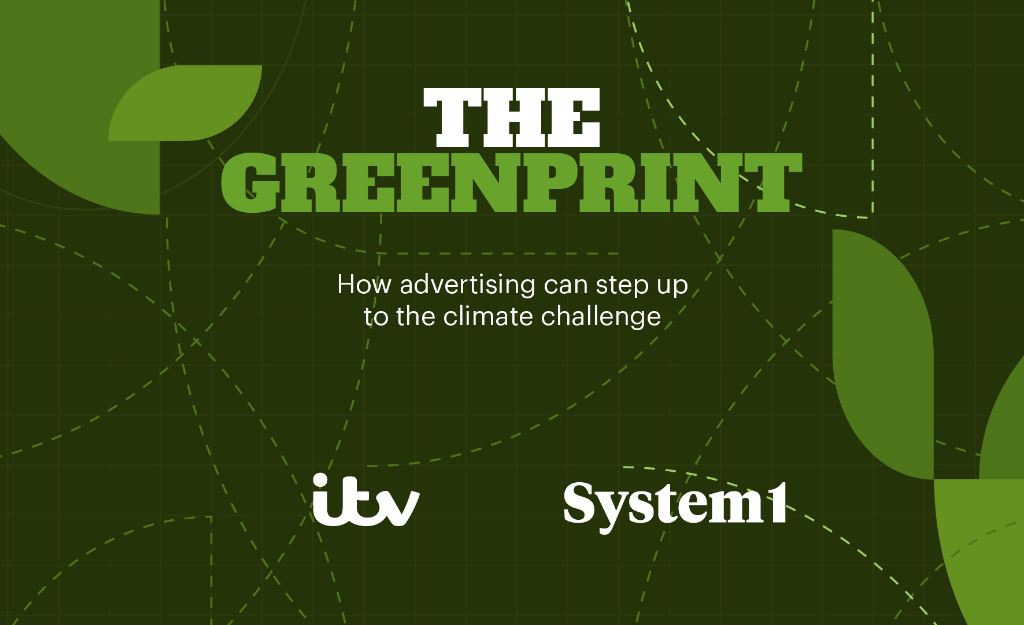Report: TV ads could do more to tackle climate crisis
November 29, 2023

The Greenprint analysed 1,000 randomly selected adverts from the last three years to assess whether they contained environmental messages and how these were being communicated. The report found:
-
A lack of green ads: Just 8 per cent – or 83 of the 1,000 adverts selected – included an environmental-led message. This is despite more than 80 per cent of UK adults having some concern about climate change.
-
Average creatives: Across System1’s ad testing metrics, adverts with an environmental message performed in line with the UK average. Being environmentally conscious is neither a shortcut to creative effectiveness nor a turn-off for viewers, and there is plenty of potential for brands to make green ads more effective and engaging.
- A focus on the least impactful areas: The most heavily featured environmental message across the analysed ads is waste reduction (22 per cent of ads), yet waste reduction ranks 60th in importance for reducing carbon emissions – meaning the industry is currently overlooking the green behaviours with the most impact.
-
Hope Over Fear: Happiness and surprise are the most effective advertising emotions. Environmental advertising that elicits feelings of optimism and hope, rather than fear, will therefore more effectively drive behaviour change.
-
Suggest It, Don’t Shout It: The best way to make an appealing environmental ad is to concentrate on making an appealing ad first and foremost. Green behaviours which are aligned with something the audience cares about, rather than positioned as ‘duties’, will be adopted more easily.
-
Stories Over Stats: Focusing on real people or recognisable characters makes the topic of the environment less anonymous and makes green behaviours feel more achievable. One particularly useful tactic is to employ Fluent Devices – brand characters which recur across ads and build familiarity as well as positive emotion.
-
Meet Them 90 per cent of the Way: Providing consumers with alternative solutions that are convenient, cost-effective, and still better for the environment lets sustainability feel more accessible. It taps into one of the most important and effective tenets of behaviour change: make the change as easy as possible.
-
Use the Right Messenger: Messages land more effectively depending on who they come from, and different kinds of messengers will have different impacts. Choosing the right messenger is important, but so is ensuring they deliver the message in an effective way.
- Triggers for change: While motivation is the necessary foundation for change, to actually make it happen you need triggers. For brands, wider cultural context is often the best place to look for triggers, and brands can leverage them to their advantage – be it the COP summit, the New Year or a personal fresh-start moment.
Jon Evans, Chief Customer Officer at System1, commented: “Effective environmental narratives in advertising play a vital role in inspiring long-term change. The Greenprint serves as a guide on how to captivate audiences and encourage them to step up to the climate challenge. In it, we explore the opportunity that effective environmental advertising presents, where the benefits are tangible for our planet, consumers, and brands themselves.”
Kate Waters, Director of Client Strategy and Planning at ITV, said: “ITV reflects and influences culture both through our programming and the advertising we carry. As such, we can play an important role in helping the nation move faster towards a lower-carbon economy and part of our commitment to doing that is to help advertisers create advertising that works hard to drive the change we need.”
Richard Shotton, Founder at Astroten, added: “Marketing has the potential to be a force for good by encouraging climate-friendly behaviours. However, there are wild differences in the effectiveness of ad campaigns. That makes it crucial to learn from the growing body of behavioural science experiments that reveal the best tactics for encouraging sustainability.”
